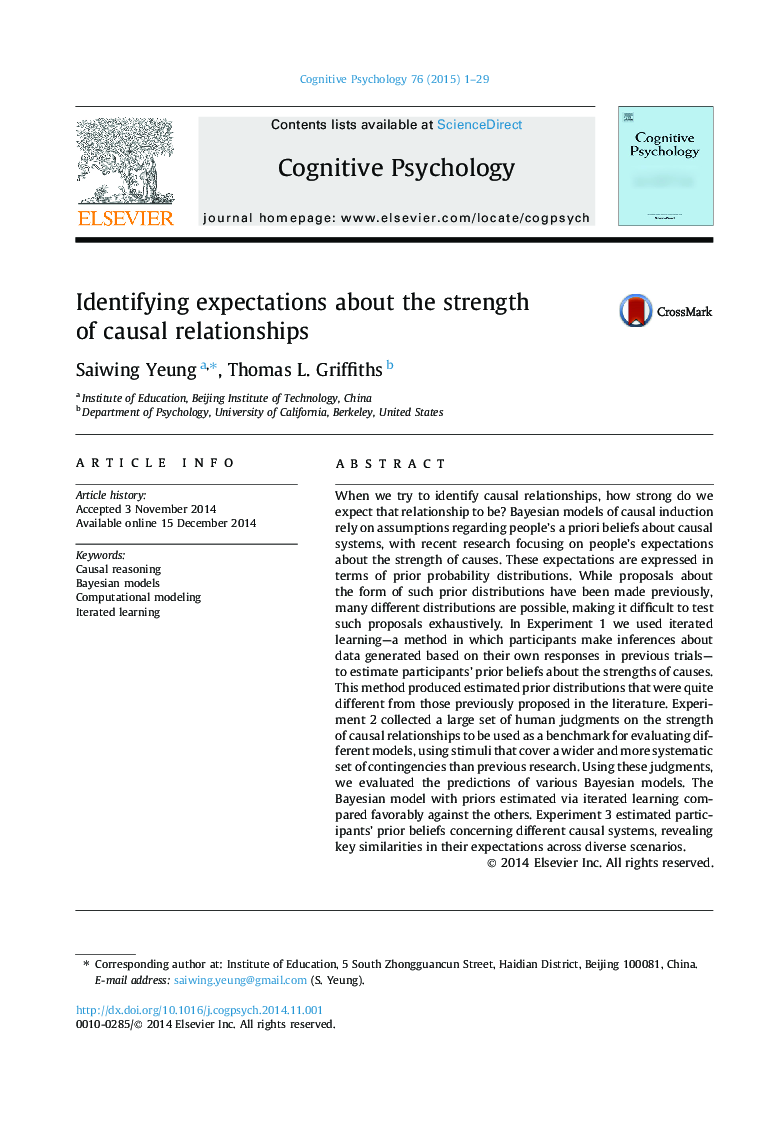| کد مقاله | کد نشریه | سال انتشار | مقاله انگلیسی | نسخه تمام متن |
|---|---|---|---|---|
| 916833 | 1473388 | 2015 | 29 صفحه PDF | دانلود رایگان |
• We empirically estimated human expectations about strengths of causal relationships.
• The estimation was accomplished using a method called iterated learning.
• These expectations were different from those previously proposed in the literature.
• We collected a large set of human judgments to be used as a benchmark for evaluation.
• Bayesian models with empirically estimated priors outperformed other models.
When we try to identify causal relationships, how strong do we expect that relationship to be? Bayesian models of causal induction rely on assumptions regarding people’s a priori beliefs about causal systems, with recent research focusing on people’s expectations about the strength of causes. These expectations are expressed in terms of prior probability distributions. While proposals about the form of such prior distributions have been made previously, many different distributions are possible, making it difficult to test such proposals exhaustively. In Experiment 1 we used iterated learning—a method in which participants make inferences about data generated based on their own responses in previous trials—to estimate participants’ prior beliefs about the strengths of causes. This method produced estimated prior distributions that were quite different from those previously proposed in the literature. Experiment 2 collected a large set of human judgments on the strength of causal relationships to be used as a benchmark for evaluating different models, using stimuli that cover a wider and more systematic set of contingencies than previous research. Using these judgments, we evaluated the predictions of various Bayesian models. The Bayesian model with priors estimated via iterated learning compared favorably against the others. Experiment 3 estimated participants’ prior beliefs concerning different causal systems, revealing key similarities in their expectations across diverse scenarios.
Journal: Cognitive Psychology - Volume 76, February 2015, Pages 1–29
